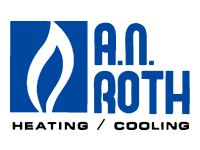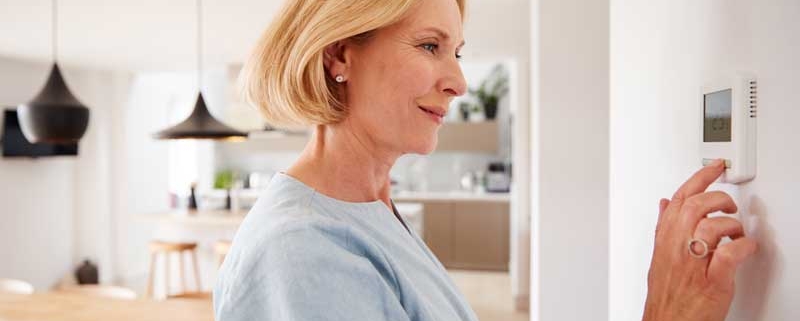Q&A with Richard Roth: Energy Efficient Ways to Heat & Cool Your Home on a Budget
As we say goodbye to the winter’s cold and prepare for the upcoming change in weather, we thought we’d ask A.N. Roth’s General Manager Richard Roth for some pointers on heating and cooling your home without breaking the household budget.
What are some simple things homeowners can do to reduce heating and air conditioning needs throughout the year?
A couple of really simple things to do in the summer would be to close your blinds and use ceiling fans. In the winter, you want to do the opposite. You’d be surprised how much heat the sun can generate in the home, as well as how much a fan can help you feel more comfortable at high temperatures. But for those looking to better address high bills or comfort issues, I suggest an energy audit performed by a home performance professional. The audit typically includes an infiltrometer test, infrared thermography, and sometimes a duct blaster test. I find this is the best way to get actual results. We always refer clients to Building Performance Group here in town, who are very thorough and helpful.
For those who have a traditional HVAC system, are there most efficient ways to use it?
This can be a loaded question. Generally speaking, programming a gas furnace in the winter when you aren’t home can save money. But programming an air conditioner is another story because we are also dealing with moisture removal. I generally tell customers with conventional furnaces and AC to program heating for savings and AC for comfort. By this I mean furnaces are almost always oversized to efficiently heat the house when it is 0 degrees outside. In other words, they usually have plenty of capacity to catch up.
AC units on the other hand are sized to keep the house around 72-75 degrees when it’s 91-93 degrees outside. That means they usually don’t have lots of extra capacity. So programming for comfort means if you like it colder when you sleep, allow the thermostat to drop the temperature for sleeping but do not set the temp high when you are gone because you may not be able to recover on hot days. The AC also works much harder and uses more watts of electricity when it’s trying to recover in extreme conditions. That could add to your monthly bill.
For those with heat-pumps, these systems usually have electric resistance supplemental heat which costs 2 to 4 times as much to operate. This is important to know because if you let the house get too cold and try to warm it up the thermostat will usually use the electric resistance heat to recover.
If radiant or geothermal are beyond your budget, are there other options in traditional systems that are more environmentally friendly?
This is another tricky question to answer because low operating cost doesn’t always mean more environmentally friendly. Generally in the U.S., the push is for electrification so I usually encourage clients to electrify their house as practically as possible. The first step is to make your home as easy to heat and cool as possible. That’s why, as mentioned before, I always recommend a home performance test. A high efficiency heat pump is also something to consider. Since heat pumps run the entire cooling season and most of the heating season, investing in a higher end unit pays off. In contrast, air conditioners run about 1/3 of the operating hours per year as a heat-pump and the lifespan is about 75%, so there are less operating hours to recoup investment dollars.
For environmentally-motivated clients, we push them towards inverter compressor systems. When these first came out they were only in very high-end units but now there are mid-tier product offerings so you are getting most of the same utility and comfort without the Ferrari price tag.
As you can see, while there are some basic things you can do to keep costs down in the height of winter and summer, it’s not always that simple. However, with a little help or an upgrade or two you can find the right balance of comfort and expense. If you have other questions about heating and cooling on a budget, please CONTACT US. We love to talk shop!



